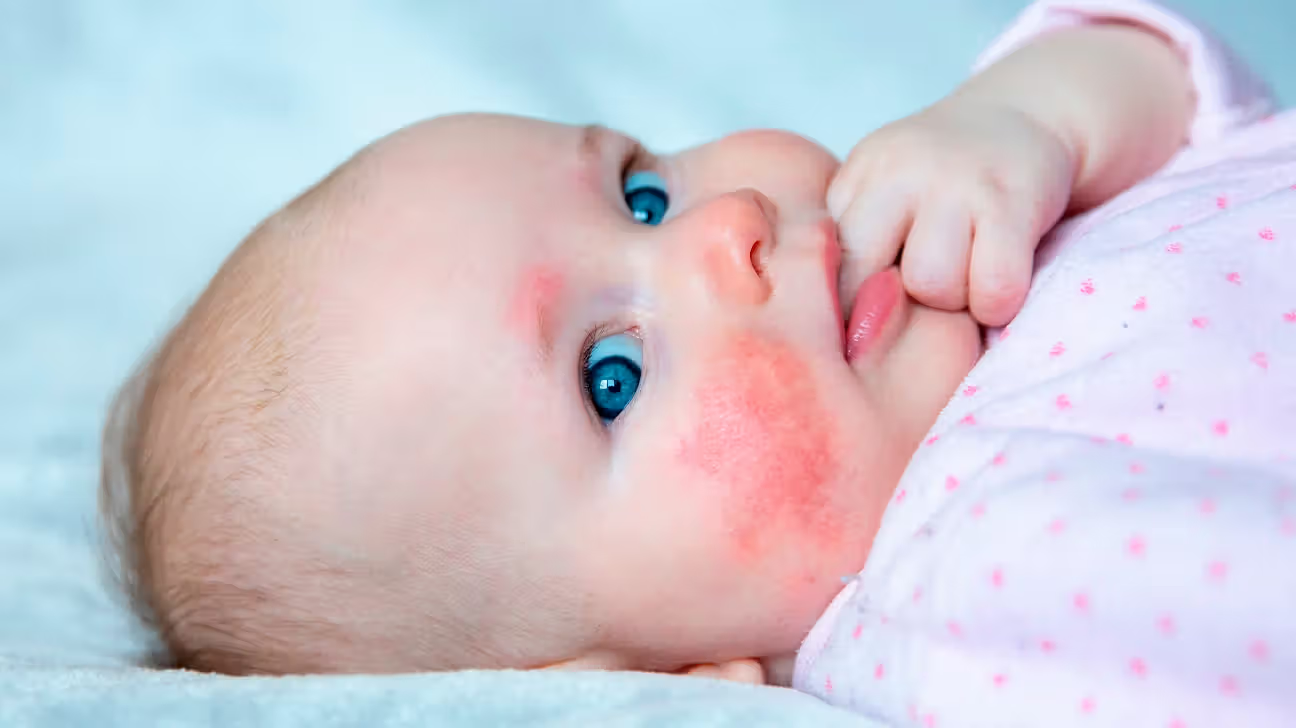As a dedicated parent, understanding common health concerns like milk allergy is essential to ensure your child’s well-being. Milk allergy is prevalent, particularly among young children. This guide aims to educate you on milk allergy, its symptoms, diagnosis, and effective strategies to manage it.
What is Milk Allergy?
Milk allergy is an adverse immune response to one or more proteins found in cow’s milk, such as casein and whey. It is one of the most common food allergies in children. When a child with a milk allergy consumes milk or milk products, their immune system mistakenly identifies the milk proteins as harmful, triggering an allergic reaction.
Who is More Prone to Milk Allergy?
Milk allergy is more likely to occur in:
- Infants and young children, especially those with a family history of allergies or asthma.
- Children who have other allergic conditions, such as eczema or hay fever.
- Children with atopic dermatitis, which increases the likelihood of developing food allergies.
Symptoms of Milk Allergy
Symptoms of milk allergy can vary in severity and may include:
- Skin Reactions: Hives, eczema, or swelling of the lips, face, and eyes.
- Gastrointestinal Symptoms: Abdominal pain, nausea, vomiting, diarrhea, or blood in the stool.
- Respiratory Symptoms: Runny nose, wheezing, coughing, or shortness of breath.
- Anaphylaxis: A severe, potentially life-threatening reaction that requires immediate medical attention, characterized by difficulty breathing, rapid pulse, and a drop in blood pressure.
Is Milk Allergy Contagious?
Milk allergy is not contagious. It is an immune system response and cannot be transmitted from one person to another.
Diagnosis of Milk Allergy
To diagnose milk allergy, a pediatrician may:
Review Medical History:
Assess your child’s symptoms and any family history of allergies.
Physical Examination:
Conduct a thorough examination to identify any allergic reactions.
Allergy Testing:
- Skin Prick Test: A small amount of milk protein is introduced to the skin to observe any reaction.
- Blood Test: Measures the level of IgE antibodies to milk proteins.
Oral Food Challenge:
Under medical supervision, your child consumes small amounts of milk to monitor any reaction.
Treatment and Management of Milk Allergy
Managing milk allergy involves avoiding exposure to milk proteins and addressing symptoms promptly:
Avoiding Milk and Milk Products:
- Read Labels Carefully: Check ingredient lists for milk proteins, including casein, whey, and lactose.
- Substitute with Alternatives: Use plant-based milk alternatives such as almond, soy, or oat milk.
- Avoid Cross-Contamination: Ensure that foods are prepared in a milk-free environment to prevent accidental exposure.
Medications:
- Antihistamines: Relieve mild allergic symptoms like hives or itching.
- Epinephrine Auto-Injector or EpiPen: Prescribed for severe reactions (anaphylaxis) to be used immediately in emergencies.
Always follow your pediatrician’s instructions regarding medications.
Nutritional Management:
Ensure your child receives adequate nutrition, especially calcium and vitamin D, from other sources such as fortified cereals, leafy greens, and supplements if necessary.
Emergency Action Plan:
Develop a comprehensive action plan outlining steps to take during an allergic reaction. Once you have educated yourself on emergency care, it is vital that you educate any other adult who will be caring for your child. These adults should know CPR and should have an EpiPen kit. Ensure everyone involved in your child’s care understands the plan and knows how to administer emergency medication. Ensure school staff are aware of your child’s allergy and know how to use emergency medications.
Regular Monitoring:
Schedule regular follow-ups with your pediatrician to monitor your child’s condition and adjust management strategies as needed.
Conclusion
Managing milk allergy in children requires vigilance in avoiding allergens, being prepared for emergencies, and ensuring proper nutrition. By taking these steps, you can significantly reduce the impact of milk allergy on your child’s life. If you have any concerns or need personalized advice, don’t hesitate to consult with your pediatrician.
Your child’s health is our priority. Let’s work together to keep them healthy and happy!
For personalized advice and treatment options, please consult:
Dr. Kritika Agarwal, Pediatrician and Adolescent Specialist
Pinnacle Health Multispeciality Clinic
Hosa Road, Bangalore








